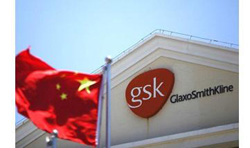If drugmakers foreign and domestic are counting on a return to reaping big benefits once China bounces back from its recent economic decline, they may wish to take another look. The economy may not be the problem; it is in the design of the nation's huge healthcare system.
That is the conclusion of a lengthy look at the healthcare situation, including pharmaceuticals, in China by London's Financial Times. China has been engaged in a huge expansion of its healthcare system for the past several years, aimed primarily at getting care to all parts of the vast country, primarily its rural parts.
According to the newspaper report, in 2012, the system was still expanding and driving a market growing by 24% a year, and funds and investments were rolling in to take advantage of and help drive a rapidly growing economy. But China's bubble burst that year in tandem with what economists term a "cyclical downturn" in the midst of a global economic slowdown, leaving endemic weaknesses in the healthcare system exposed.
The report said that even while demand was increasing for pharmaceuticals, medical devices and other healthcare items, China needed to rein in the costs of the system and operate it more efficiently.
China especially saw a need to get more bang from its $150 billion spent on pharmaceuticals at the same time a new government focused on ending corruption, which in healthcare centered on a hospital system that relied on drug sales for adequate income.
 Although the initial corruption target was British drugmaker GlaxoSmithKline ($GSK), the head of the Novartis ($NVS) Chinese unit, Chairman Xudong Yin, said, "the whole health system is unbalanced," according to the report.
Although the initial corruption target was British drugmaker GlaxoSmithKline ($GSK), the head of the Novartis ($NVS) Chinese unit, Chairman Xudong Yin, said, "the whole health system is unbalanced," according to the report.
It said much of the corruption continues and that many other multinational drugmakers are feeling a need to pay bribes to compete with the local drugmakers still doing so, but at the same time they are trying to avoid GSK's fate by cleaning up their act.
One consultant told the Financial Times the Chinese general managers of foreign drugmakers still get pressure from the home office to meet sales targets, leading them to walk a fine line between corruption and making sales by under-the-table offers.
China also continues to work on other reforms in the healthcare system, steadily adopting new policies to cut costs, now eyeing the generics sector, even though only 10% of its drug spending remains on innovative drugs still under patent protection. That imbalance has led to inflated prices for generics in China.
At the same time China attempts to encourage local manufacturing and private hospitals it is working to speed its drug-approval process, still a major thorn in the side of MNCs. Also, another expert said the huge health insurance system created by China is reaching more patients, but "the coverage is shallow."
The pharmaceutical industry faces all of those problems in China despite a continued increase in demand for the products that stands to continue getting even greater.
- here's the story from the FT (sub. req.)